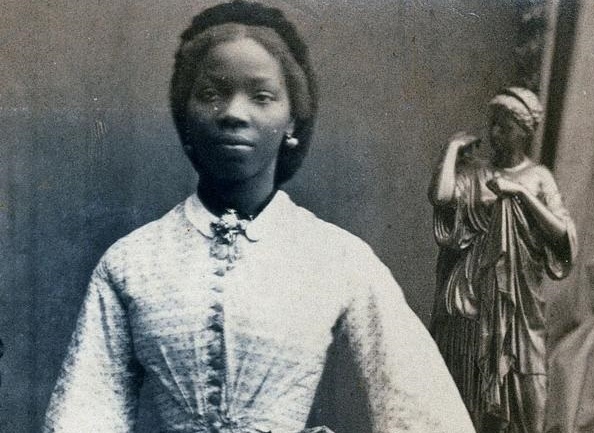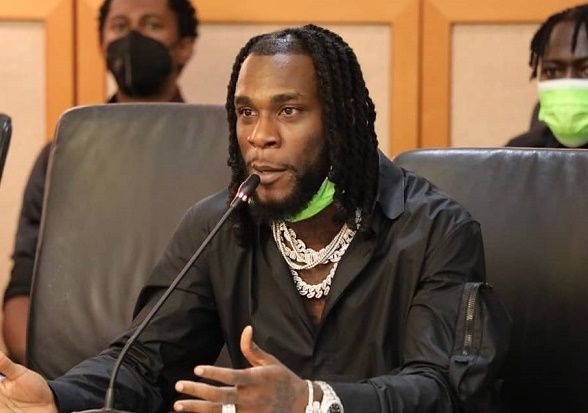The story of Anna, the Egbado little girl, and our lack of progress as a people
Great stories are made when misfortunes spin a fortunate turn. We relish a tragic plot that fails to deliver a sad ending. So, the grass to grace story of raggedy start and happy end tickles the soul. We love it when a dwarf falls a giant. That is why David and Goliath and their battle in the valley at Ella resonate. The story of the little man in defiance of gravity rekindles hope for miraculous; it reassures that we too can spring great surprises.
Rarely does fate turn tragedies around as it did in the case of Anna, the seven-year-old girl from Egbado area, captured in a raid by King Ghezo in 1848. Anna lost all her family members in the raid and was whisked to Dahomey by the slaver-king with other captives. The young girl had thought she would be sold into a far-flung land, it was unknown to her as she contemplated her fate that the king had a different plan; a morbid plot, to keep her aside, later to be offered as a sacrifice to his gods. Anna was still at the ledge of the horrid fate when Captain Fredrick E. Forbes landed at the Whydah port in 1850, two years into her captivity.
The Captain was in Dahomey as an emissary of Queen Victoria to make the slaver-king see it was time to end the Trans-Atlantic Slave trade, that Britain had abetted for more than three centuries. Forbes would later recount that he was driven by the intelligence of the little girl slated for the gods to ask the King to allow him to take her to England as a gift to Queen Victoria, and King Ghezo mercifully consented.
Forbes gave Anna a new name, Sarah Forbes Bonetta, after himself and the ship that sailed them out of Whydah port in 1850. He presented the girl to Queen Victoria as he landed, and the monarch took a liking to the maiden the moment she set eyes on her. She affectionately named her Sally and brought her in to live at Windsor Castle.
Advertisement
Like a piece from a fantastic tale, the one who was pledged to the gods by the Dahomey king became the ward of the palace in England. Queen Victoria later describe her as “sharp and intelligent”, the superlatives rarely used on blacks by whites those days, in the deeply racial English society. Anna also enrolled in school under a royal sponsorship when formal schooling was still a rarity here in the continent of her birth. The ward of the Queen was married to James Labulo Davis, a Yoruba compatriot in England as she turned 19 in 1862.
Though it sounds like a tapestry for fables, the story of Anna and her rendezvous with fate is a rarity in history. It was unusual for a slave pledged to the gods to end up getting a reprieve from a mindless fellow like King Ghezo. It was not also commonplace for the Queen of England to adopt a Black child, send her to school and arrange for her to be married in the deeply racial Victorian society.
You would have thought the unusual peculiarities of that story would offer Anna a special mention in our history, despite our disdain for history. Anna still lurks in the apocryphal and in anonymity while we laud the likes of Lord Lugard, Mungo Park, and Lord Harcourt.
Advertisement
The story of the young Egbado native; Aina, aka Anna in Ghezo court, Sarah Forbes Bonetta to Captain Forbes and Sally to Queen Victoria, portends some lessons for the present. First, that story put paid to the fantastic tales on why Europe and America should bear all the responsibilities for Trans-Atlantic Slave Trade. Anna proves that African elites were not just sitting idly by in the inhuman trafficking of fellow Africans to the whites. King Ghezo and his ilk make the one-sided calls for reparations ahistorical and tenuous.
Second, the intervention by Forbes to save “sharp and intelligent” Anna from her appointment with the gods directly speaks to our disposition here for wasting human resources. The trajectory on Anna would have led to a tragic denouement but for the providential interventions of the outsider. No doubt, many “sharp and intelligent” Anna were swept away by the tide of the 300-year trans-Atlantic slavery, aided and abetted by our past elites. Some were obviously offered as propitiations to the gods by the likes of Ghezo. Sad stuff, how the young; male and female, are still daily ground to dust and sacrificed to the lust and incompetence of our current elites. It seems that our own “modern-day” Ghezo is insisting on the ruination of our country.
Third and why Anna is relevant is that contempt for life that still looms large here, in her place of birth. Life now is nasty, brutish and short, like in the days of her captivity. Now like then, armed men stomp our homes, roads, and forests in a murderous rage and without fear of recompense. Commuting from one point to another has become a hazardous undertaking.
While our Ghezo snores, we receive press releases from men we did not elect, threatening fire and brimstones to victims as the assailants roam unmolested in the forests and IDP camps. Sure, Anna would wince at how things have changed and still remain the same. She would cringe that kidnappers now batter their victims in broad daylight, just like in the old days. Only now, the abductors wield AK-47 instead of bows and arrows as they bay for huge ransoms from their prey. They could not sell them for rewards in foreign now because the slave galleons no longer berth in our docks.
Advertisement
Yet keepers of our portals keep reeling out fantastic numbers, telling us that we are not seeing what we see, that we in fact are better off since we voted them into power.
Anna would be appalled at how little we have done for our country and the Black race since our flag independence 61 years ago. She would be appalled at tribalism and ethnicity fanned by our rulers, the impudence at the highest echelons, and how we do the same thing over again and expect different results. But think of it, who wouldn’t be appalled at us?
Wole Akinyosoye, a commentator on public affairs, lives in Lagos
Advertisement
Add a comment







